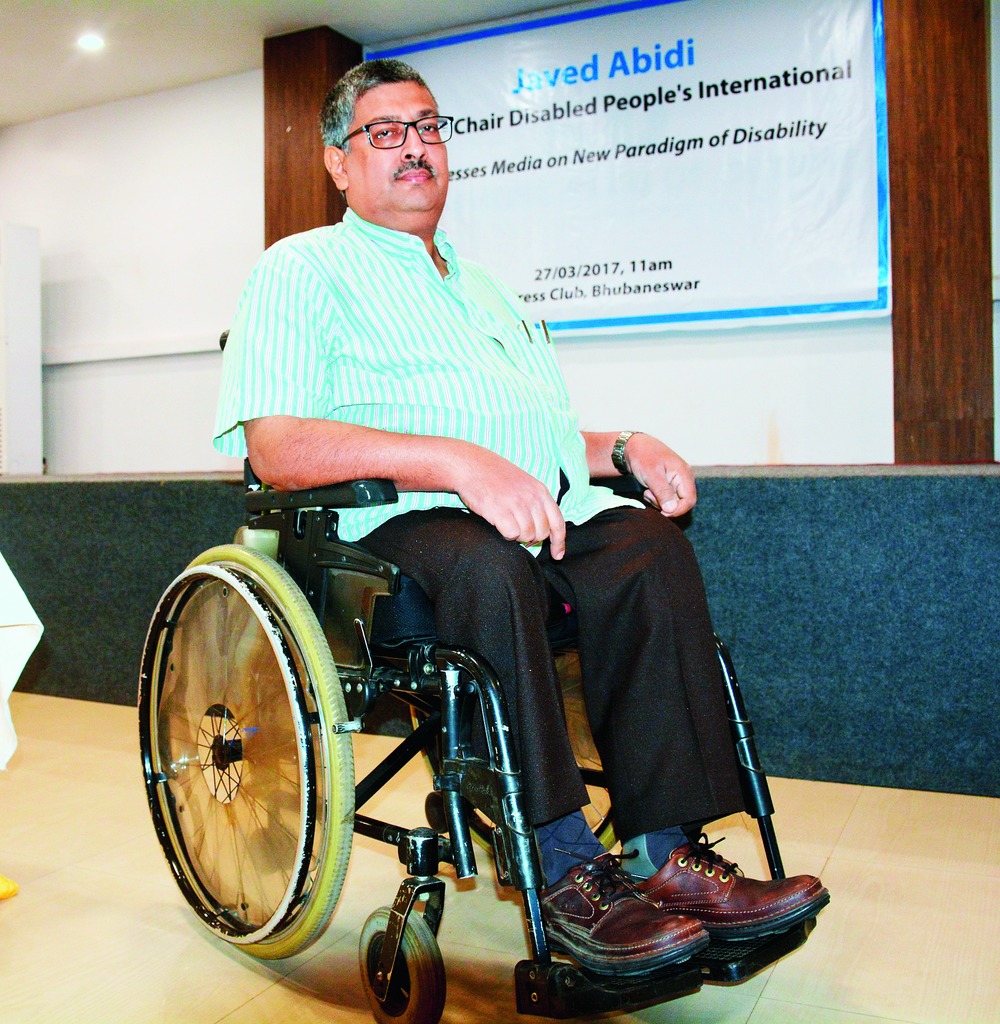
Javed Abidi in Bhubaneswar
on Monday. Picture by
Ashwinee Pati
Bhubaneswar, March 27: Disability rights activist Javed Abidi said smart city missions across the country was not smart enough as it neglected the digital inclusion of disabled persons.
"The top 20 smart cities of the country, including Bhubaneswar, find very few mention of disability in the overall process. While several city proposals talk about accessible pathways or barrier-free walkways, almost all of them have neglected a disabled persons' access to IT-enabled solutions such as e-governance and citizen services," said the differently-abled activist, who was in the city today.
Abidi will attend a seminar here tomorrow to discuss with smart city officials and government representatives about various parameters that need to be pondered over while planning for an accessible city.
"None of the government websites in this state are disabled-friendly although we have a guideline for that. It is very important that policy-makers involve the differently-abled people during the planning process - which is never done. Unless they come to know about the problems we face, the solutions would never suffice," said the Disability Rights Group founder.
He said private sectors should also be brought under the ambit of disabled persons' accessibility. "The differently-abled people visit public places as well as shopping complexes or companies. But, the private sector has always been kept out of the plan, which is one of the biggest challenges," he said.
He cited lack of specific regulating authority to ensure accessibility features under the mission and of awareness regarding e-accessibility for the disabled persons by the stakeholders were other challenges. "Internationally, there are initiatives being undertaken to develop guidelines, standards and tools for making smart cities inclusive for the differently-abled people. These should be adopted and implemented," he said.
He is optimistic that implementation of the new disability rights law will help change things positively for the differently-abled people. "It can be a game changer if implemented properly. We have been neglected, but with the new law a sense of accountability will come about," he said.
The Rights of Persons with Disabilities Bill, 2016, was passed replacing the existing PwD Act, 1995. The number of disabilities listed rose to 21 from seven after the amendments to include acid attack and Parkinson's disease. The bill sets the government a two-year deadline to ensure persons with disability get barrier-free access in various sectors.
The public works department, along with the civic body and the development authority, will shortly ensure barrier-free access for differently-abled people at 21 major public places in the city.










